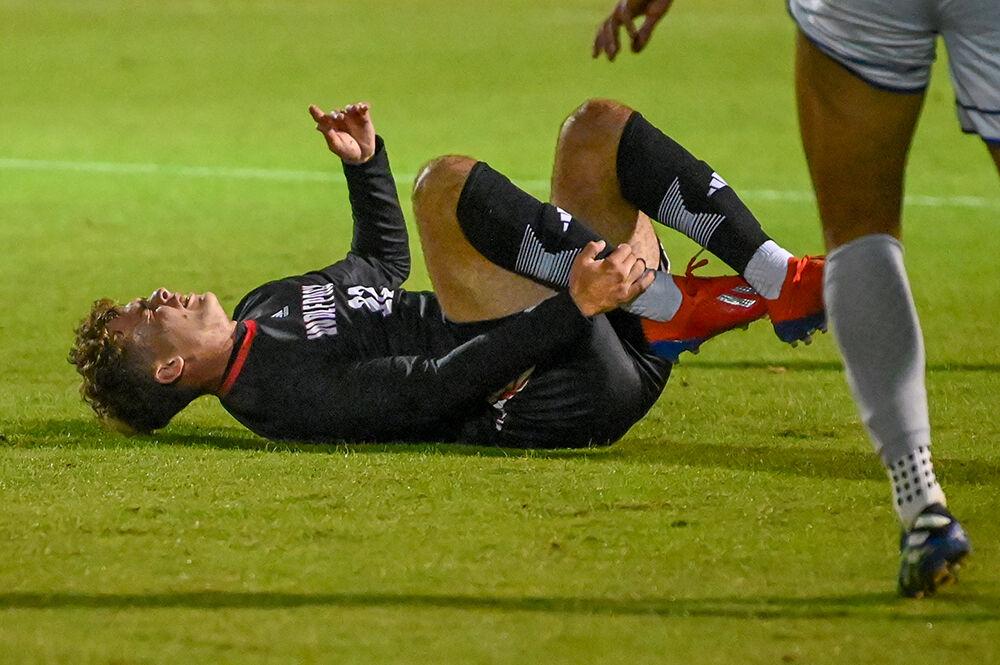It’s nearly impossible to sit in the stands of any stadium, arena or field at NC State and not be enamored by the talent of the Wolfpack’s athletes. While everyone has gifts in life, sports prove to be one of the best ways to exhibit an individual’s gift to the world. For many players, athleticism and ability construct the foundation of their identity. When that foundation is shaken, however, the aftermath can be devastating.
Injuries are a sobering, unavoidable and unpredictable part of a student athlete’s life. A student athlete’s response to injuries often reflects those adjectives through emotions that may have lay dormant for years, waiting for calamity to strike. Expressing profound sadness, anger and lack of motivation cover just a few of the psychological obstacles a player faces throughout recovery from injury. No formula exists to predict the emotional rollercoaster in store for each athlete’s experience.
Adversity creates a fork in the road for everyone. One path holds hope in opportunity to grow through a difficult, boundary-pushing grind toward coming back better, whereas the other is a bleak, dejecting rut that creates a longing for anything that feels like a foothold or eases the pain. Every great comeback story has discouraging ones to match, making it truly up to each person to choose which path to follow.
For the bystanding fan, it has become so easy to acknowledge a player’s injury and continue to the next play, snap or whistle in a blink without a second thought to the traumatic reality facing a real human on the other side. In a digitized world, fans are desensitized to what happens outside of themselves, especially what’s only seen through a screen. Sports are a business, and the supply chain has to keep moving, making it challenging to grasp the personalities and emotions that lie underneath a jersey.
Take graduate safety Devan Boykin, who tore his ACL in December during preparation for the Pop-Tarts Bowl. The Greensboro native is still yet to return to action, almost nine months later. From an outside perspective, the Wolfpack suffered a devastating loss before an important bowl game that could end up costing them against No. 18 Kansas State. “I hate it for the kid” or “poor guy” is ordinarily the most thought given to someone like Boykin in his most painful hour.
Head coach Dave Doeren has given multiple updates leading up to this season as to the recovery of Boykin and has shared his sympathy since the injury occurred, but has focused on the collective good of the team, as is his job. Too much money, too many resources and too little margin for error exist for one player to impede an entire program. As a result, this leaves an injured athlete in the dust to cope, largely by themselves, while trying to maintain support of their teammates who are taking advantage of the dream they’re missing out on.
If the torment on the field wasn’t enough, these young adults are trying to make it through school, create life-long relationships and potentially jump-start a career. Losing a passion like sports can be the last straw to break the camel’s back, leading a student-athlete to have to stand against these hurdles deprived of the one aspect of college that brought them true joy.
Specifically in today’s landscape, mental disorders like anxiety, eating disorders, substance use or abuse and even depression have grown into everyday terms that people of all ages and backgrounds are up against. Significant injury can be a factor in unmasking these illnesses.
According to research from the Charlie Health mental health service, depression rates amongst college athletes range from 15.6% to 21%. If the research correlates correctly, between 16 and 23 of the players on NC State’s football roster are facing depression, an unbelievable thought for those watching on the couch. There are, of course, specific groups of stigmatized individuals who boost the percentages, but it does not diminish the fact that this issue is real amongst college athletes.
While injury may seem like a routine occurrence in collegiate sports, it proves to hold a far greater impact on the lives of athletes and those around them. Realizing there is a body behind the brand is crucial for the average fan to understand.
For athletes, developing a support system can be crucial to avoid falling into a dark place during a period of strenuous recovery. Simple passion cannot always bear the weight of such hard seasons of life. Opposing these things alone is too much weight for the strongest souls, sending too many young men and women with immeasurable potential down the wrong side of the fork in the road. Finding teammates, whether literal or metaphorical, to uplift, encourage and even push each other through difficult seasons is imperative to life, not just sports.








